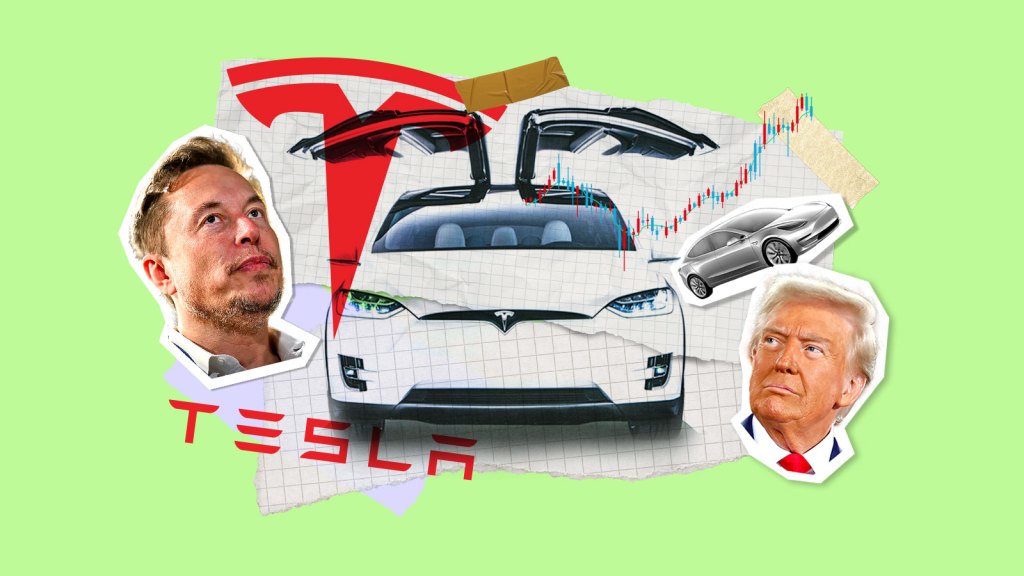Is Now the Right Time to Invest in Tesla Shares?
Elon Musk’s influence on investors has always been polarizing. Recently, a negative reaction to his involvement with President Trump’s Department of Government Efficiency contributed to Tesla’s weakest quarterly performance since 2020.
However, since Musk pledged to redirect his focus toward Tesla, the company has seen an increase of nearly $100 billion in market value following the release of its first-quarter results.
Confidence in Musk’s ability to stimulate demand for Tesla’s electric vehicles has driven the company’s enterprise value up to approximately 72 times expected adjusted earnings, nearing peaks seen during both the post-Covid surge in high-growth equities and the post-Trump election rise. This makes Tesla the priciest stock among the so-called “magnificent seven,” which includes firms like Alphabet, Amazon, Apple, Meta, Microsoft, and Nvidia.
Despite Musk’s renewed commitment, getting Tesla back on track may prove challenging. For the latest quarter, revenue reached $19.3 billion, falling short of Wall Street’s $20 billion estimate and representing a 9% decrease from the previous year, with a 13% drop in deliveries and continued price reductions.
In addition to brand reputation concerns, Tesla faces intensifying competition from Chinese manufacturers like BYD and established automakers such as Volkswagen, both of which are introducing their own hybrid and electric vehicles.
BYD has taken the lead as the world’s largest seller of electric vehicles this year and surpassed Tesla in European sales for the first time in April, indicating that the Shenzhen-based company is successfully challenging its American counterpart well beyond its domestic market. BYD is targeting a different segment, recently launching a new electric sedan with specifications similar to Tesla’s Model 3, but priced at about half.
To counter competitive pressures, Tesla plans to release more affordable models before year’s end and update its Model Y to attract buyers. A partial halt in production at some factories earlier this year to enhance manufacturing capabilities also led to lower delivery numbers for the first quarter.
Prices have continued to decrease as Tesla seeks to boost demand, a strategy analysts predict will persist in the coming months, forecasting an average sales price of $38,300 by the first quarter of the following year, down from $39,720, according to Factset data. This price drop, in conjunction with declining sales volume, has negatively impacted profit margins, with operating profits dipping 66% to $399 million in the latest quarter.
Though gross margins of 12.5% exceeded the consensus estimate of 11.6%, they remain significantly lower than historical averages over the past decade. Analysts at Barclays project that the previous quarter may represent the low point for margins, anticipating gradual improvements in sales volume, but the introduction of new lower-cost offerings and potential tariff challenges could pose risks.
Tesla also remains vulnerable to tariff implications as it sources some components, including battery cells, from overseas, particularly China. The company’s energy division is likely to face a significant impact from these tariffs as well. Tesla’s finance chief, Vaibhav Taneja, indicated that the company is actively working on diversifying its supply chain away from China-based suppliers, though this effort will take time.
The uncertainties brought on by tariffs and broader macroeconomic factors have led Tesla to retract its guidance for a return to sales growth this year. In light of this unpredictable economic landscape, the company has committed to maintaining a robust balance sheet. Notably, it has returned to generating free cash flow, reporting $664 million for the first three months of the year, a substantial turnaround from a $2.5 billion outflow during the same period last year.
The long-term implications of Musk’s political actions on the Tesla brand remain uncertain. Nonetheless, the market’s renewed optimism in Musk’s leadership provides little margin for error.
Recommendation: Avoid Investing – Reason: High valuation does not account for the various risks impacting sales.




Post Comment